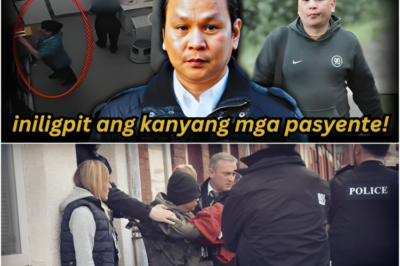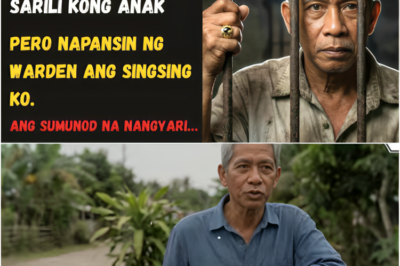Sad news for Aly Goni family as Aly Goni brokedown for his Family att@ck in Jammu Kashmir
.
.
Ali Goni’s Emotional Plea: Actor’s Family in Jammu Faces Border Unrest Amid Rising India-Pakistan Tensions
As tensions between India and Pakistan escalate once again, the violence and unrest are no longer limited to the frontlines—they are seeping into the lives and homes of ordinary civilians living near the border. One such deeply personal and emotional account has come from Indian television actor Ali Goni, who is currently outside the country for professional work while his entire family remains in Jammu, grappling with fear, drone activity, and conflict-induced instability.
Ali, known for his roles in various popular TV serials and his appearance in Bigg Boss, took to Instagram to share a heartfelt message, accompanied by a series of family photos, that laid bare the emotional toll this ongoing crisis has taken on him. His post resonated across social media, drawing reactions from fans, friends, and fellow celebrities.
This story is not just about one actor’s grief—it’s about the thousands who live close to the Line of Control (LoC), and the human cost of conflict that’s too often lost in statistics and headlines.
Sleepless in Exile: Ali’s Emotional Breakdown
In his Instagram post, Ali wrote:
“Sleepless and shattered. Stuck out of India as my family in Jammu endures last night’s unrest. My whole family, my parents—they all had to face the drones and the sounds of tension near our home. Yet some people glorify this war from the comfort of their homes, posting on social media. It is not that easy for those near the border.”
The words were raw and honest—more than a celebrity’s concern, they revealed the deep fear and helplessness of a son unable to be with his loved ones during a crisis. The post was accompanied by a series of candid family photos: birthday celebrations, quiet dinners, moments of laughter—now overshadowed by the looming threat of violence.
His post immediately drew widespread support and compassion. Actress Krishna Mukherjee commented, “Prayers for everyone.” Fellow actor Kishwer Merchant offered solidarity, writing, “Prayers for your family.” Another public figure, Aditi, added, “More power to the humans who are protecting us relentlessly. Hope, strength, and prayers for all.”
The Night of Drones: What Happened in Jammu
According to military sources and an official statement from the Indian Army, the Pakistani armed forces launched multiple aerial intrusions using drones and other munitions along the western border regions, particularly impacting areas near Jammu. These unmanned aerial vehicles (UAVs) were reportedly used to survey or potentially drop explosives, a growing concern in recent border hostilities.
The Indian Air Force (IAF) and local defense units quickly mobilized, and counter-drone measures were activated. Fortunately, in this instance, no casualties were reported in the civilian areas of Jammu, though the psychological and emotional impact was severe.
Ali Goni later expressed gratitude in a follow-up post:
“I’m out of India, shooting. My family is in Jammu. I was terrified last night. But thank God, everyone is safe—thanks to our IAF and security forces.”
The message, though relieved, carried the exhaustion of someone who spent a night not knowing if his family was alive.

The Cost of Living Near the Border
Jammu and Kashmir, particularly the border towns and villages, have for decades lived under the shadow of unpredictability. From shelling to cross-border firing, now to drone attacks, residents experience a version of life marked by routine alerts, bunkers, and emergency protocols.
For someone like Ali Goni—whose family has always lived in Jammu—the trauma is not new. But being away from home during such times adds another layer of helplessness.
His story serves as a stark reminder of what it means to “live near the border”—a phrase that often fails to communicate the daily anxiety, the interrupted lives, and the mental health crises that come with it. While mainstream media may focus on strategic wins or losses, the common citizen faces disrupted sleep, school closures, business losses, and worse—grief.
The Role of Social Media in Wartime Empathy
Ali’s post also threw light on a jarring contrast that social media often amplifies during wartime: the glorification of war by people detached from its ground realities.
“Yet some people glorify this war from the comfort of their homes, posting on social media,” he wrote.
Indeed, war and conflict have become talking points for political debates, online trends, and patriotic sloganeering. But for those caught in the crosshairs, war is not a philosophical position—it is a living nightmare.
Ali’s post challenges influencers, digital citizens, and opinion-makers to shift their gaze from political posturing to real human stories.
Celebrity Reactions: A Moment of Solidarity
Ali Goni has long been a beloved figure on Indian television. His vulnerability invited an outpouring of love from fans and celebrities alike. Some notable reactions include:
Krishna Mukherjee: “Prayers for everyone.”
Kishwer Merchant: “Sending you strength. Hope your family stays safe.”
Aditi: “More power to the humans who are protecting us relentlessly. Hope, strength, and prayers for all.”
This collective concern highlights how celebrity influence, when used responsibly, can shine a light on crucial issues like conflict displacement and civilian trauma.
The Broader Political and Military Context
The latest rise in hostilities between India and Pakistan follows a period of relative quiet after the 2021 ceasefire agreement. However, as history has shown, peace along the LoC is often temporary.
In its official release, the Indian Army stated:
“Pakistan armed forces launched multiple operations using drones and other munitions along the entire western border. Counter measures were immediately deployed to ensure civilian safety.”
Drones have become a new front in modern warfare, especially in border areas, with their stealth capabilities and remote operation offering new challenges for defense forces.
According to defense analysts, this marks a shift in strategy from traditional shelling to aerial surveillance and sabotage via unmanned systems—a development that India’s armed forces are rapidly adapting to.
Hope and Resilience: A Message from Ali Goni
Despite the trauma, Ali ended his message with a note of gratitude and hope:
“Thank you to the Indian Air Force for ensuring the safety of my family. Thank you to the armed forces who protect us every day.”
His words serve as both a tribute and a wake-up call—a reminder that behind every soldier, there’s a family. Behind every safe city, there are vulnerable towns enduring sleepless nights.
Ali Goni’s story may have caught attention because of his fame, but there are countless families in Jammu, Poonch, Rajouri, and other border districts who live in fear every day. His message brought those silent stories to the forefront.
Conclusion: A Personal Story, A National Reality
Ali Goni’s post is more than just a celebrity’s emotional outburst—it is a mirror to the many untold stories of ordinary Indians navigating extraordinary danger. His vulnerability revealed the emotional cost of geopolitical unrest and gave voice to a community often overshadowed by military narratives.
In a time when nationalistic fervor can sometimes overshadow empathy, Ali’s story is a reminder that true patriotism is not just about flags and slogans—it’s about caring for those who bear the cost of conflict every day.
Let us hope for peace, let us hope for strength, and most importantly, let us never forget the people behind the posts—people like Ali Goni, and families like his, who are living through the very conflicts we casually scroll past.
Our thoughts are with Ali Goni and every family living near the conflict zones. May peace return soon.
PLAY VIDEO:
News
PINAKASIKAT NA FILIPINO NURSE NA BINANSAGANG ANGEL OF DEATH – VICTORINO CHUA
PINAKASIKAT NA FILIPINO NURSE NA BINANSAGANG ANGEL OF DEATH – VICTORINO CHUA . . Part 1: Ang Lihim ng Gabi…
Ipinakulong Ako ng Sarili Kong Anak — Pero Isang Singsing ang Nagbago sa Lahat
Ipinakulong Ako ng Sarili Kong Anak — Pero Isang Singsing ang Nagbago sa Lahat . . PART 1: Ang Singsing…
Isang 20 anyos na dalagang Brazilian ang napaiyak habang hinahanap ang ama sa Pilipinas
Isang 20 anyos na dalagang Brazilian ang napaiyak habang hinahanap ang ama sa Pilipinas . . Part 1: Ang Lihim…
GRABE ANG GANDA NI ATE GURL, PINAG-AGAWAN NG MAGKAPATID –
GRABE ANG GANDA NI ATE GURL, PINAG-AGAWAN NG MAGKAPATID – . . Part 1: Sa Lilim ng Iisang Bubong Kabanata…
Manny Pacquiao Minamaliit sa Airport — Hindi Inasahan ang Nangyari Pagkalipas ng 9 Minuto!
Manny Pacquiao Minamaliit sa Airport — Hindi Inasahan ang Nangyari Pagkalipas ng 9 Minuto! .. Part 1: Sa Likod ng…
‼️VIRAL‼️ PINOY TEACHER NA PINAGUUSAPAN NGAYON SA AMERIKA, NAKAKAHIYA GINAWA
‼️VIRAL‼️ PINOY TEACHER NA PINAGUUSAPAN NGAYON SA AMERIKA, NAKAKAHIYA GINAWA .. . Part 1: Ang Guro Mula Antique: Pangarap, Pagkabigo,…
End of content
No more pages to load










